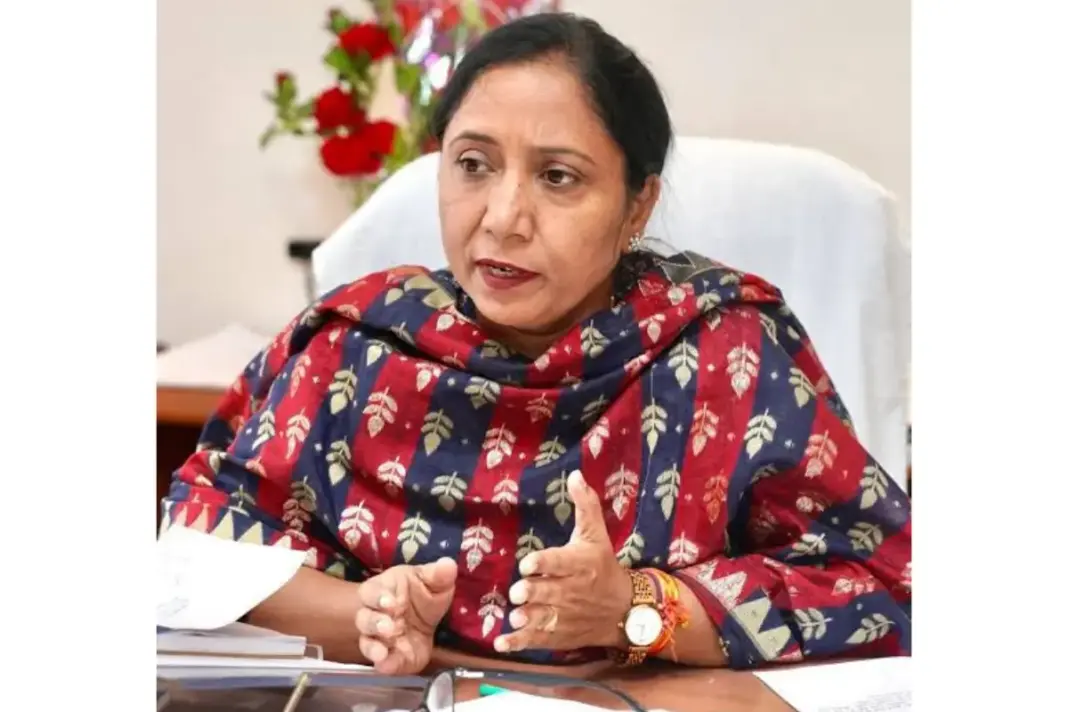Today, the relief and confidence on the faces of millions of women in Punjab is a sign of Chief Minister Bhagwant Singh Mann’s true leadership. The ‘Navi Disha’ scheme is not just a government program for distributing sanitary pads, but a commitment to giving top priority to the dignity, health, and respect of Punjab’s daughters.
This scheme has achieved victory on two major fronts: it has eliminated the poor quality problems of the old Congress government and established Punjab as a ‘role model’ in health delivery compared to many major states in the country.
The previous Congress government’s ‘Udaan’ scheme spent about ₹40.55 crores annually, but women clearly say that the pads they received were poor quality, smelly, and caused infections. That money was only spent on paper, while women only got discomfort and shame.
The Mann government immediately changed this disrespect. A large investment of ₹53 crores has been made in the ‘Navi Disha’ scheme, which shows not only a bigger budget but also better intentions. As a result of this large investment, women are receiving excellent quality pads that are soft, safe, and 100% biodegradable (environment-friendly). Under guaranteed delivery, 13.65 lakh women are ensured a regular supply of 9 napkins every month. Also, to maintain digital transparency, distribution is monitored in ‘real-time’ through mobile apps and dashboards, so there’s no room for theft or irregularities. Women know that the budget increase is not just spending, it’s a direct investment in their health and dignity.
DON'T MISS
Compared to other major states, Punjab has established a better, smoother, and more reliable model. While Uttar Pradesh has more cloth usage and supply interruptions, and Bihar/Jharkhand have the lowest hygiene rates and weak distribution networks, Punjab is guaranteeing high coverage and monthly delivery to 13.65 lakh beneficiaries through its strong network of 27,313 Anganwadi centers. In states like Madhya Pradesh and Rajasthan where stock-outs and lack of rural access have been major problems, Punjab has eliminated stock-outs through digital monitoring and ensures monthly delivery. Unlike Odisha and Chhattisgarh’s inconsistent implementation of schemes, Punjab’s scheme is structured, consistent, and quality-checked, approved by the Cabinet.
Punjab has now become the country’s leader in health and empowerment. In states where millions of women still live in fear of shame and infection, Punjab’s women are going to work with confidence and safety.
Gurpreet Kaur from a village says, “Earlier it was difficult to go to work during those days of the month. We didn’t have money, felt ashamed. Now the Anganwadi sister comes home every month to give pads. Mann sahab understood our small problem and restored our dignity.”
‘Navi Disha’ is not just a health scheme. It is proof of Mann government’s good governance, transparency, and genuine respect for women. This scheme shows that when intentions are clear, government schemes can change millions of lives.
Every woman and daughter of Punjab is saying with pride today: The Mann government has given us not just convenience, but safety, dignity, and a ‘Navi Disha’ (new direction) to move forward. This is the real strength of the Punjab Model, which has placed it miles ahead of other states in the country!



